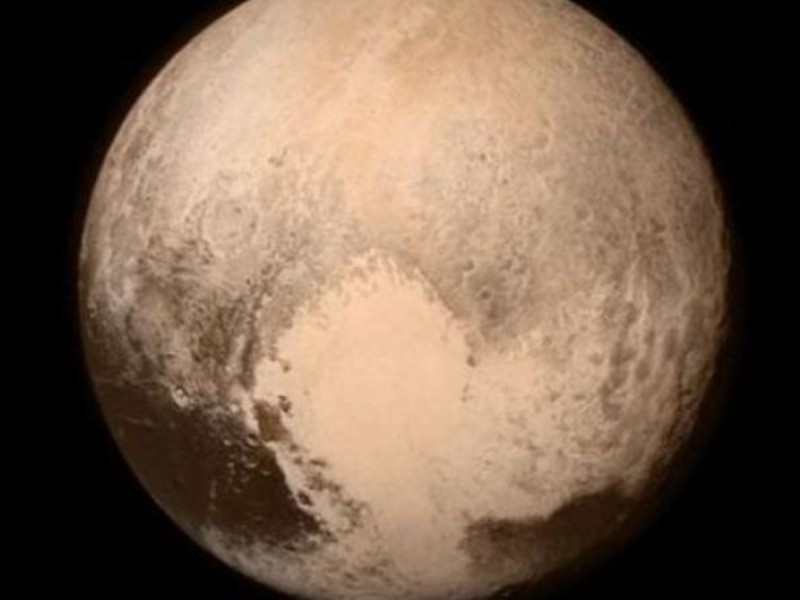
Pluto: Icy, weird, far away – finally gets a close encounter with Earth
For the first time in its 4-billion-year life, Pluto got a visitor from Earth.
Prompting wild applause and hugs at the Mission Operations Center here, the spacecraft sent signals confirming that it survived its historic rendezvous with Pluto and continues to sail through the outer zone of the solar system. Engineers on the ground received the much-anticipated messages beginning at 8:52 pm Tuesday, 13 tense hours after the craft’s historic flyby.
“The spacecraft was happy,” mission operations manager Alice Bowman said, summarizing the technical details New Horizons sent to the ground. “In this instance, our spacecraft did exactly what it was supposed to do.”
Principal investigator Alan Stern of the Southwest Research Institute in Boulder, Colo., interpreted the spacecraft’s transmissions another way, calling them “one small step for New Horizons and one giant leap for mankind.”
The team took congratulations from luminaries ranging from President Obama, who tweeted, “Thanks @NASA — it’s a great day for discovery and American leadership,” to British physicist Stephen Hawking, who recorded a message in his trademark electronic voice saying that he’ll “be watching closely” as the spacecraft beams its trove of data to Earth.
Upon hearing the good news, the scientists, mission staff and guests yelled and whistled even more loudly than they did at 7:49 am ET Tuesday, the precise moment of the spacecraft’s closest approach to Pluto, and many team members shed tears. No human-made object has been closer to Pluto, once considered the outermost planet in the solar system but now officially known as the biggest dwarf planet in the Kuiper Belt, the icy, far-removed Siberia of the solar system.
After the spacecraft phoned home, mission personnel responsible for various systems on the spacecraft reported to Bowman on the status of the spacecraft’s various components. The bottom line was always the same: “nominal,” or as expected. The reports made clear that during the 22 hours the spacecraft was on its own, it had executed the proper maneuvers, hadn’t used up too much of its fuel, and had collected plenty of data.





















